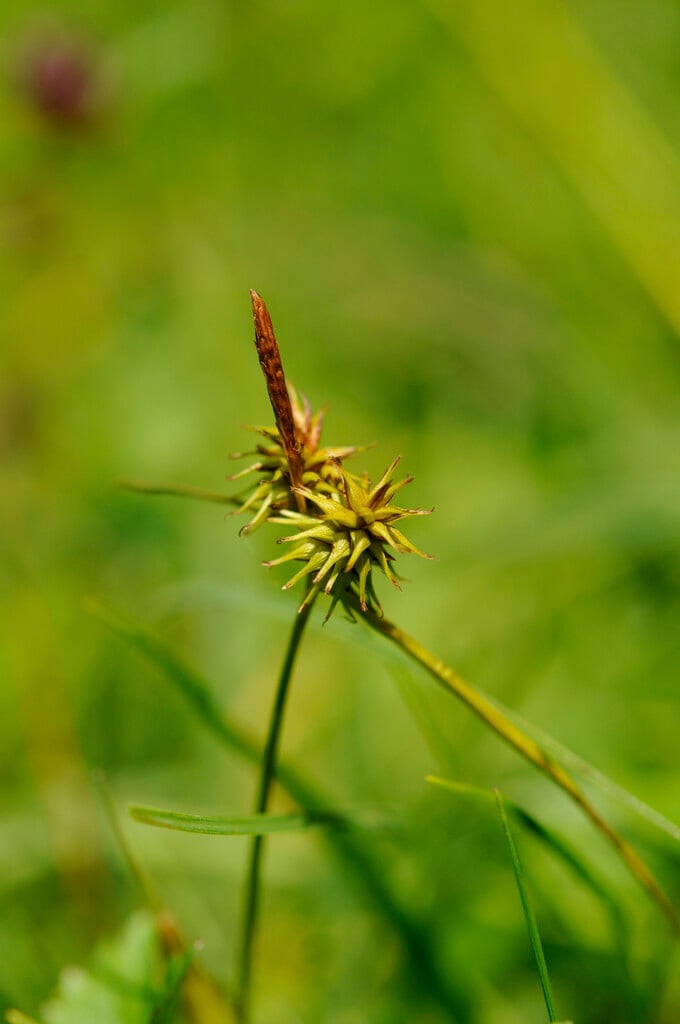Carex flava
hedgehog grass
A clump-forming, semi-evergreen perennial with toothed, mid to pale green strap-shaped foliage which prefers a damp, boggy location. Spikes of green to orange-brown flowers with bristly pale yellow to green bracts appear from June to July
Synonyms
Carex patula
Buy this plant
Size
Ultimate height
0.5–1 metresTime to ultimate height
2–5 yearsUltimate spread
0.5–1 metresGrowing conditions
Moisture
Poorly–drainedpH
Acid, Alkaline, NeutralColour & scent
| Stem | Flower | Foliage | Fruit | |
| Spring | Green | |||
|---|---|---|---|---|
| Summer | Green Orange Brown | Green | ||
| Autumn | Green | |||
| Winter | Green |
Position
- Full sun
- Partial shade
Aspect
East–facing or North–facing or South–facing or West–facing
Exposure
Exposed or Sheltered Hardiness
H4Botanical details
- Family
- Cyperaceae
- Native to GB / Ireland
- Yes
- Foliage
- Semi evergreen
- Habit
- Clump forming, Tufted
- Genus
Carex can be deciduous or evergreen, rhizomatous or tufted perennials, with triangular stems bearing linear or strap-shaped leaves and short or long spikes of tiny green or brown flowers
- Name status
Correct
How to grow
Cultivation
Prefers moist, poorly-drained soil in sun or partial shade. Grows well at the edge of ponds or streams
Propagation
Propagate by division in spring
Suggested planting locations and garden types
- Coastal
- Cottage and informal garden
- Wildflower meadow
- Flower borders and beds
Pruning
No pruning required but dead leaves or flowers can be removed in the spring
Pests
Generally pest-free
Diseases
Generally disease-free
Love gardening
Sign up to receive regular gardening tips, inspiration, offers and more
View our Privacy Policy
Get involved
The Royal Horticultural Society is the UK’s leading gardening charity. We aim to enrich everyone’s life through plants, and make the UK a greener and more beautiful place.